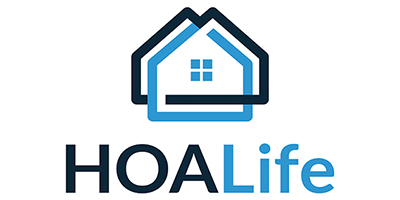HOA Statement: Everything You Need to Know

What is an HOA Statement
An HOA statement is also called the accounts receivable statement or HOA dues statement. It is an important part of the annual financial statements, including the balance sheets, income statement, cash flow statement, annual payable report, etc.
The HOA statement is a paper or electronic statement of the dues of each member towards the HOA. This fee includes regular work like maintaining common areas such as lobbies, patios, landscaping, swimming pools, tennis courts, a community clubhouse, and elevators.
In many cases, the fees cover some common utilities, such as water/sewer fees and garbage disposal.
The HOA must make sure that every member receives a separate detailed statement under his name.
In addition to statements for regular dues, owners may also receive an HOA statement with a special assessment (an unplanned payment that an HOA board can impose on homeowners) on it, as and when required.
Special assessments are unplanned and can also be pricey depending on what the payment is for. So an HOA should reserve them only for things like natural disasters or other kinds of emergencies. At the same time, there should be strict rules and proper fines against members not paying the HOA fee, as that can also bring about special assessments.
Key facts about HOA Statement
What does it comprise of
An HOA statement typically includes, but is not limited to the following things:
- The date of preparation of the statement
- The HOAs name and address
- The receiver’s name and address
- Maybe a note of your last payment
- The amount due at the end of the receiver, and the last date for making the payment
- A break-up of the total fee. For example, overdue monthly expenses or assessments, late fees, vendor credits, etc.
- Details of the HOA account and the accepted modes of payment.
So the HOA statement can have varied dues and the amount can change accordingly.
It is good to have the possible late fee and any other fines included in the document so as to minimize disputes. Because prior notice and exact information about the fine is the best prevention against any such default and even if it does happen, you have done your part.
What is its frequency?
The frequency of preparing an HOA statement can be different with different HOAs and also by varying state laws. A good idea though is to prepare it on a monthly basis though, so it becomes a part of members’ monthly expense habits.
The HOA can efficiently plan a monthly due for the members while planning the HOA budget, as the budget process allows them to account for most expenses, along with the reserve fund.
The HOA should try to vary this statement only in case of any unforeseen expenses like damages because of weather or any other emergency.
Because even big expenses like refurbishing the swimming pool or the roofs can be planned in advance and covered under the reserve funds.
If monthly seems too much, sending an HOA statement quarterly is also a great idea. The point is that it is good to collect the dues in small installments instead of one big amount yearly so more people can find the HOA fee feasible.
How to automate the process around it?
The common option that comes to mind is sending the HOA statement via email or post. However, in the long run, it can become difficult to keep track of the payment activity with both of these methods.
So the best is to update electronic statements on the HOA member login website and upload statements there. You can update the electronic statements as frequently as required, so they give a more clear picture of each member’s actual current liability with the HOA.
HOA management software makes it possible, along with managing other key functions of an HOA, like issuing CC&R violation reports and violation letters, accepting payments, managing the books, etc.
You can also give multiple online payment options to your members to automate the process further. Some of the best platforms are Braintree, Payline, 2Checkout, Stripe, etc. However, as we said, the HOA management software can do this function too.
How are its deliverables managed?
The HOA works continuously towards the upkeep of its community and it needs money to do that. If they do not receive regular funds, the whole system falls apart.
So, the HOA also reserves some rights in case they do not receive a timely fee from some members. It may only be one odd person or a couple of them, but it does happen that people do not pay their dues, maybe because they are short of funds.
There may also be cases where members do not agree to the fee charged and it becomes a long-term issue.
The HOA can take progressive action in such cases, like:
- Charging late fee
- Sending legal notice
- Putting a lien on owner’s property, etc.
However, the scope of HOAs right depends on where it is located. Therefore it is necessary to go through your state law and have a clear view of what actions you can take and what you cannot.
Conclusion
We hope that our roundup of information about the HOA statement will help you have a better understanding of it, or even make one for your own HOA.
We wish you all the best!

Ready to dive into the handbook?
It only takes a second to grab your free copy — packed with actionable self-management tips, stress-free solutions, and ways to simplify board responsibilities. Just share your name and email, and it's yours for free.
Ready to take a closer look at HOALife?
Find out if HOALife is the right fit for you in just 30 minutes.
Personalized demo
Time-saving tips for your HOA
No pressure, just answers





